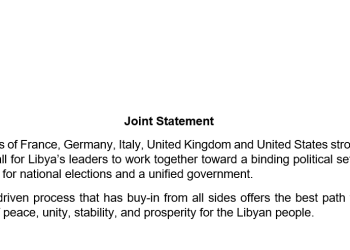By Maha Sulaiman.

Benghazi, 31 May 2016:
Banks in Benghazi will start using the new “Russian” Libyan dinar bank notes tomorrow and have . . .[restrict]extended their opening times though there will still be limits on withdrawals.
LD 200 million of the new notes were flown in from Moscow to Labraq airport yesterday. The Beida Central Bank of Libya has since been distributing the new notes in the east of the country, with the lion’s share going to Benghazi.
To handle the expected rush, from tomorrow banks will be closing two hours later, at 4pm. However customers will still be unable to withdraw whatever they want from their accounts. The present daily limit of LD200 will remain in force up to a maximum of LD2,000 in a month and no more than LD1,000 in a single week.
Beida CBL governor Ali Habri promised last week that the new notes would coming into use in the east tomorrow. Banks in the west of the country would start using them on Sunday. The Russians are contracted to deliver LD4 billion of notes. It is unclear how much arrived at Labraq and whether there are due to be further shipments from Moscow to Tripoli and an airport in the south.
Meanwhile for many state employees will find cold comfort in the arrival of the new Russian-printed liquidity. Their bank accounts are actually empty because their government employers have failed to transfer salaries. The extent of the problem is unclear but this newspaper has been told that some teachers have not been paid for at least three months. Nor is it evident why the government has failed to pay its workers.
There is a further question mark over the injection of the new banknotes. In recent months the dearth of cash has meant that people have been settling their bills with post-dated cheques. Retailers in particular have been holding large sums. If the banks choose to honour these cheques, it could affect the availability of the new money.
In addition, if those who wrote these cheques are victims of the failure of government departments to settle outstanding salaries, when retailers present them, there are likely to be problems. [/restrict]









